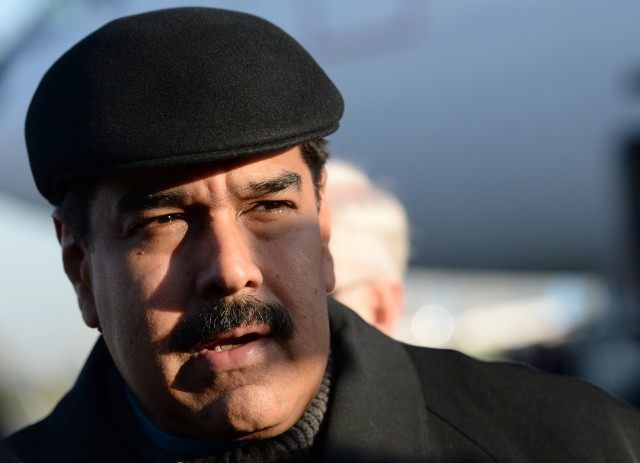The rapid and steady decline of Venezuela’s national currency, the Bolívar, is forcing a growing number of businesses to do trade only in American dollars, freezing out Venezuelan citizens from buying cars, renting apartments, or boarding flights offered by businesses that refuse their currency even when they can muster an equivalent amount of retail prices in Bolívars.
The growing parallel market, a product of gross mismanagement on the part of the Venezuelan socialist government that has made inflation soar higher than 100 percent this year, resembles the official parallel market in Cuba. Cuban citizens are barred from luxury hotels and restaurants and relegated to the nation’s poorest regions as government-controlled businesses reject the Cuban peso for the “Convertible Peso,” whose value is equal to that of an American dollar.
The Associated Press reports that the trend toward American dollar business in Venezuela began last year as multinational corporations began to flee the nation, fearing the decline of the Bolívar. AP notes that Ford has reduced its production in Venezuela by 90 percent, while Clorox left the nation entirely. At the time, President Nicolás Maduro accused Clorox of abandoning the nation and expropriated its property, stating: “Socialist formula: any company that’s abandoned will be taken over by the working class.”
Now Venezuela fears a number of similar corporations will leave the country, causing the economy to fully collapse. In a move intended to accommodate their concerns regarding the economic situation in the country, many have been allowed to trade in dollars. Those who have appear to be leaning towards “dollar-only” policies.
Ford began selling their cars and trucks in dollars only this month. American Airlines has begun selling flights in dollars only, as well. The AP adds, “virtually all other foreign carriers have made the same switch with the government’s consent, according to the Venezuela Airlines Association.”
This means that Venezuelans are not allowed to buy Ford cars and trucks or take flights out of the country. The shift is fueling growing anger at Maduro among Chavista loyalists, who are largely of the working classes. “How is it possible that in the face of the U.S. effort to sabotage the revolution, we are allowing transnational companies to conduct business with the imperialist dollar in our country?” the AP quotes one supporter, Omar Hernandez, writing on a pro-government website.
The AP notes that analysts see this as one of the few ways for Venezuela to keep “floating along” without its economy collapsing entirely. El Universal, the nation’s largest newspaper, places the price of the dollar in Venezuela at 400 Bolívars, a devastating low. Inflation is at 105.9 percent.
The dual currency system is uncannily reminiscent of Venezuela’s biggest ally, Cuba, officially installing two currencies — one equal to the dollar and the other, a realistic currency Cuban nationals use. The Cuban Peso is worth 26.5 Convertible Pesos (and, thus, one dollar) — and is significantly more powerful than the Bolívar. Nonetheless, most Cubans cannot visit the nation’s luxury hotels, restaurants, or boutiques. The government also uses this system to steal away large percentages of Cuban salaries. In December, the Cuban government announced it would pay Cubans working for foreign companies two pesos for every convertible peso, rather than 26.5 pesos per convertible. This means Cubans working for foreign companies will receive only eight percent of their salaries; the government keeps the other 92 percent.
The only booming industry in Venezuela currently is cocaine trade, which remains illegal but occurs, many contend, with the government’s blessing. A Wall Street Journal article published this month reported that American officials are investigating several high-ranking members of the Venezuelan government, including National Assembly President and current #2 Diosdado Cabello, for running a drug cartel and trafficking drugs into the United States. “There is extensive evidence to justify that he is one of the heads, if not the head, of the cartel,” said a Justice Department official of Cabello.
There is substantial evidence and multiple reports throughout the years that the Venezuelan government sustains itself through the cocaine trade. Hugo Chávez’s former security chief Leamsy Salazar, who defected to the United States this year, claimed upon arriving in the U.S. that Cabello was the head of the “Cartel de los Soles,” which specializes in cocaine. He also accused Cabello and others in the Venezuelan government of using the drug trade to negotiate with and aid the Iranian terrorist group Hezbollah. A former Venezuelan diplomat went as far as to accuse President Maduro of funding his presidential campaign with Cabello’s cocaine money.
The Hezbollah claims have repeatedly surfaced, particularly in light of the assassination of Argentine prosecutor Alberto Nisman in January. “The state itself directly participates in criminal activities and in the support of terrorism, primarily the Revolutionary Armed Forces of Colombia (FARC) and Iranian Hezbollah,” said Center for International Assessment and Strategy’s Douglas Farah in an interview with Uruguayan publication El Observador. “It participates directly in drug trafficking; that is its principal criminal activity.” Similarly, as early as 2009, star New York prosecutor Robert Morgenthau wrote in the Wall Street Journal that “intelligence gathered by my office strongly supports the conclusion that Hezbollah supporters in South America are engaged in the trafficking of narcotics.”

COMMENTS
Please let us know if you're having issues with commenting.